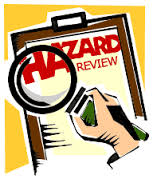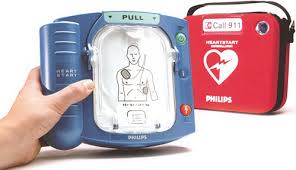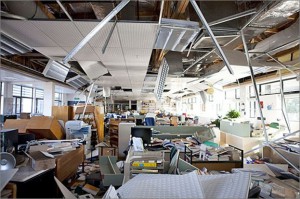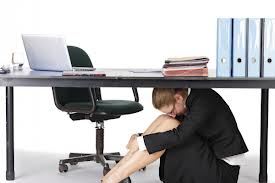Blog
 WorkSafeBC inspectors may suggest that they are just trying to “get the facts,” but every question they ask is designed to get the evidence they need. You should always be on your toes and follow the military maxim, “Never volunteer.” Inspectors are like TV interviewers. They’re trying to get the information they need, and they know that you are unlikely to volunteer anything that will be damaging to your case. As a result, they resort to indirect questions. Furthermore, they often phrase these questions carefully, trying to make it look as if you are being given a chance to exonerate yourself, or justify questionable procedures.
WorkSafeBC inspectors may suggest that they are just trying to “get the facts,” but every question they ask is designed to get the evidence they need. You should always be on your toes and follow the military maxim, “Never volunteer.” Inspectors are like TV interviewers. They’re trying to get the information they need, and they know that you are unlikely to volunteer anything that will be damaging to your case. As a result, they resort to indirect questions. Furthermore, they often phrase these questions carefully, trying to make it look as if you are being given a chance to exonerate yourself, or justify questionable procedures.
Dealing with safety inspectors requires balance and common sense. Never lose sight of the fact that they are professionals, and that they are looking for information that may not make you or your company look good. On the other hand, inspectors are doing an important job, helping to protect the health and safety of your employees.
Keep the following guidelines in mind:
• Never be rude. Even when you think that you should not cooperate, be polite, but firm. Personal animosity will only make a bad situation worse.
• Be cautious. Never volunteer anything. Never grasp at an opportunity to put yourself or your employer in a good light. Why not? Think about it. How often have you listened to people talk themselves out of a job by responding too carelessly to your carefully crafted questions? The same could be true in this case. Choose your words carefully.
• If in doubt, you can refuse to answer a question. In most cases, you can ultimately be compelled to respond, but many times the matter will not be pursued. If it is, you’ll have time in the interim to consult with counsel as to the best approach.
Don’t
• Demonstrate any activities or operations for the inspector
• Volunteer any information
• Volunteer any records not requested
• Make any admissions of guilt
Do
• Designate one qualified, knowledgeable person to be the liaison with the inspectors, and train the person accordingly
• Examine a warrant carefully
• Duplicate the inspector’s tests and actions
• Indicate trade secret area
• Prepare, with the help of counsel, a standard operating procedure for handling inspectors
• Conduct your own safety audits regularly, making sure that this important “quality control” element is part of your compliance program
Blog
Guest blog by Jan Kirkpatrick, President, First Edition First Aid Training Inc., National Philips AED Distributor
Philips AED’s in the Workplace? Absolutely. They are saving lives.
The national survival rate, for cardiac arrest (with EMS/Fire responding) is less than 5%. Locations that house an AED may experience survival rates as high as 70-100%. This is because lay-people are able to bring the AED to the patient in less than 4 minutes.
After calling 911 and turning on a Philips AED, the unit will coach the rescuer through the emergency until EMS/Fire is able to respond and take over patient care. This is one of the key pieces to the substantial increase in workplace cardiac arrest survival.
Cardiac arrest saves (and survival) are occurring across Canada as a result of basic CPR training and the quick responses of co-workers, friends and families.
Philips AED’s are designed to be used by the ordinary person in an extraordinary moment. They are the fastest, safest, most user-friendly AED’s on the market and require no regular scheduled maintenance.
Protect your employees and clients by becoming a ‘heart-safe workplace’.

Blog
When planning for an emergency the rule of thumb is to plan for the “worst case scenario.” Out here on the west coast we always hear all this earthquake talk…the big one is coming…expect the unexpected.
Much of the concern centers on school safety, preparing a household kit, there is less discussion on how your business if going to be affected. The rule of thumb is for households to be able to manage without help for 72 hours after an emergency. Whether it be flood, earthquake or any other natural disaster. However, businesses really need to be prepared to survive for a lot longer than that. Businesses require more resources than you would expect to remain operational. We have to assume airports will be closed, bridges will be inaccessible and infrastructure will be compromised.
According to the Toronto based Institute for Catastrophic Loss Reduction, “A quarter of businesses that close because of natural disaster never reopen.” It also says businesses with fewer than 10 employees are “especially vulnerable.”
FACT: Vancouver is at risk for a major earthquake.
According to Barbara Yaffe, a reporter for the Vancouver Sun, “Companies in this city that prepare for a Big One will have a much better chance of reopening and surviving financially.”
We at SOS understand that employers might have a hard time investing time and money in disaster planning when they are concerned about meeting the next payroll – but making the decision to be prepared now will aid local business should a natural disaster occur. The loss of jobs, life and property is a reality if businesses do not take the time to invest and plan properly. With a 1/3 of our time spent at work many of us could find ourselves at work when an earthquake hits.
Does your office have a plan? supplies?

Blog

On October 17th, a locally-driven, world wide “Drop, Cover, and Hold On” drill will take place called The Great ShakeOut. All residents, agencies, businesses, and organizations across the world are encouraged to take part in the largest earthquake drill in history! Register here http://shakeoutbc.ca/
With this fantastic event only 2 weeks away, we thought it be a great time to share some earthquake safety steps with you:
Before the next big earthquake we recommend these steps that will make you, your family, or your workplace better prepared to survive and recover quickly:
- Secure your space – identify hazards, secure bookshelves and heavy furniture
- Plan to be safe – create a family emergency response plan, have a meeting place
- Organize emergency supplies – ensure you have enough emergency food and water for a minimum of 72hrs. It should be easy to carry in case you have to evacuate
- Minimize financial hardship – organize important documents; keep copies in an alternative location if possible
During the next big earthquake, and immediately after, is when your level of preparedness will make a difference in how you and others survive and can respond to emergencies:
- Drop, Cover & Hold – when the ground starts to shake
After the immediate threat of the earthquake has passed, your level of preparedness will determine your quality of life in the weeks and months that follow
- Ask for feedback on how the drill went.
- Schedule the next drill for one year later (or sooner).
- Share photos and stories at Share the ShakeOut.
- Encourage your staff to prepare at home

Blog
The official Canadian Red Cross First Aid app puts lifesaving advice in your hands. Available for Apple and Android mobile devices, the app helps you maintain your first aid skills and respond to everyday emergencies. By downloading the app on your smartphone or tablet, you get instant access to videos, interactive quizzes and simple step-by-step advice to help you maintain your life-saving skills and respond when needed. Download the app to keep lifesaving help in your hands.
Simple, step-by-step instructions guide you through everyday first aid scenarios.
- Fully integrated with 911, so you can call EMS from the app at any time.
- Videos and animations to help you sharpen your first aid skills.
- Safety tips for everything from severe winter weather to hurricanes, earthquakes and tornadoes, to help you prepare for emergencies.
- Preloaded content means you have instant access to all safety information at any time, even without reception or an Internet connection.
- Interactive quizzes allow you to earn badges that you can share with your friends and show off your lifesaving knowledge.
Available at the App store
Blog
Some of my friends call me a pessimist….
I think I am a realistic, well-prepared person.
Should there ever be a major disaster, or a minor one for that matter, I know my family and I might be on our own for days – maybe even weeks. I want to BE PREPARED. But then again, I am the mom who always has the extra sunscreen, water, and snacks!
Most people say, ‘I’ll get my emergency kits tomorrow,’ and tomorrow never comes. But I think: What if it happens tonight? What if you put it off and you’re sitting with your family? You don’t want to sit there wishing you had listened to that inner voice do you?
You can put emergency preparedness kits in your home, car, office and more. But why run around trying to collect everything? Afterall, you are busy person.
For as little as $150 CAD a family of four can have a starter home kit:
- backpack (you need those hands free)
- 4 x 3600 calorie food bars (shelf life 5 years)
- 24 x sterile water packets (shelf life 5 years)
- 1 x pkg of 20 water purification tablets
- 1 x hand crank flashlight, radio & USB cell phone charger
- 4 x 12hr light sticks
- 4 x whistles
- 4 x ponchos
- 4 x rolls of toilet tissue
- 4 x dust masks
- 4 x solar blanket
- 1 x signal mirror
- 1 x pr safety glasses
- 1 x pr work gloves
- 1 x “Call Police” sign

 WorkSafeBC inspectors may suggest that they are just trying to “get the facts,” but every question they ask is designed to get the evidence they need. You should always be on your toes and follow the military maxim, “Never volunteer.” Inspectors are like TV interviewers. They’re trying to get the information they need, and they know that you are unlikely to volunteer anything that will be damaging to your case. As a result, they resort to indirect questions. Furthermore, they often phrase these questions carefully, trying to make it look as if you are being given a chance to exonerate yourself, or justify questionable procedures.
WorkSafeBC inspectors may suggest that they are just trying to “get the facts,” but every question they ask is designed to get the evidence they need. You should always be on your toes and follow the military maxim, “Never volunteer.” Inspectors are like TV interviewers. They’re trying to get the information they need, and they know that you are unlikely to volunteer anything that will be damaging to your case. As a result, they resort to indirect questions. Furthermore, they often phrase these questions carefully, trying to make it look as if you are being given a chance to exonerate yourself, or justify questionable procedures. 




